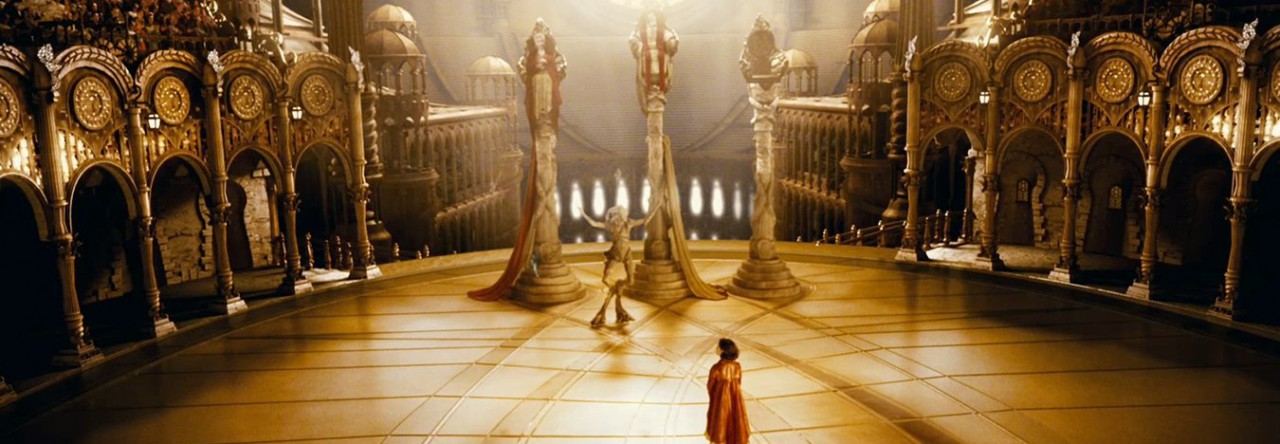Author: Pål Ødegård Page 4 of 13
“Nobody tells this to people who are beginners, I wish someone told me. All of us who do creative work, we get into it because we have good taste. But there is this gap. For the first couple years you make stuff, it’s just not that good. It’s trying to be good, it has potential, but it’s not. But your taste, the thing that got you into the game, is still killer. And your taste is why your work disappoints you. A lot of people never get past this phase, they quit. Most people I know who do interesting, creative work went through years of this. We know our work doesn’t have this special thing that we want it to have. We all go through this. And if you are just starting out or you are still in this phase, you gotta know its normal and the most important thing you can do is do a lot of work. Put yourself on a deadline so that every week you will finish one story. It is only by going through a volume of work that you will close that gap, and your work will be as good as your ambitions. And I took longer to figure out how to do this than anyone I’ve ever met. It’s gonna take awhile. It’s normal to take awhile. You’ve just gotta fight your way through.”
― Ira Glass
So it turns out that research shows brainstorming doesn’t work.
The reason brainstorming has intuitive appeal is that it encourages you to lay off the censoring for a while, and to go for quantity over quality. Those points are still valid. But the technique needs refinement to be more effective and to yield ideas of a higher quality.
One study, by Gallupe and Cooper (1993) found that electronically mediated brainstormers generated more high quality ideas than face-to-face brainstomers. So to have better face-to-face brainstorming sessions, you should tweak the technique using these guidelines:
- People should be encouraged to list ideas before coming to brainstorming sessions.
- The number of ideas produced by each person should be monitored.
- Problems should be broken down and group members should brainstorm components.
- Groups should take breaks from each other.
- High standards should be set for the number of ideas.
It seems that the real benefit of collaborating and working in groups is not in producing ideas, but evaluating them. So a good method for a writing team would be to generate ideas individually first, before meeting up to bandy the ideas around, discuss them, and see which ones sink or swim. New ideas will emerge in these sessions, building on the already existing ideas.
Vi landa på Peretola-flyplassen i 12-tiden i går, etter å ha vært i transit siden klokka fire på morgenen. Derfor var vi rimelig trøtte da vi tok taxi inn til byen for å finne leiligheten. Vi møtte husverten vår, Barbara, rett utenfor leiligheten. Kåken ligger i andre etasje i en gammel murgård på Piazza del Mercato Centrale.
Mye av søndagen gikk med til å sove og slappe av. Vi spiste middag på restauranten Zà-Zà, rett ved inngangsdøra vår. Trivelig lokale og diger meny. Vi var kjedelige og gikk for pizza – og den var like trøtt og slapp som oss. Like smakløs også.
I dag gikk jeg på lykke og fromme nedover San Lorenzo og nedover mot Arno. Temperatur rundt frysepunktet, kald vind. Brått gikk jeg meg på arkaden der Hannibal Lecter knivstakk en lommetyv i Ridley Scotts Hannibal. Jeg ungikk alle menn med hatt. I samme gata, Via Pellicceria, fant jeg den irske puben Old Stove, der jeg slo meg ned for en kopp kaffe og gratis wi-fi.
Jeg gikk videre til museene i Palazzo Vecchio, for å se om det hang noen politimenn og dinglet fra vinduene. Det gjorde det ikke. Det var et foredrag på gang i Salone dei Cinquecento, men kåsøren så ut til å være en feminin serber, ikke en beregnende kannibal.
Det later til at de eneste morderiske galningene du finner i Firenze er muslimhatende og paranoide bloggere. Slik sett er Italia akkurat som hjemme.
We all know the routine. You’re watching a TV-show or a movie where something mysterious is happening. Our hero is urgently looking for answers and solutions. Suddenly a character pops up that is supposed to be enigmatic, but more often is just plain annoying. Our hero demands an explanation, but the annoying enigma-character just answers «You need to trust me. We don’t have much time.»
At this point I’ve seen this scene done badly so many times that my bullshit alarm goes off. It’s lazy writing, and a grim example of a writer baring the device inadvertently, through incompetence rather than conscious choice.
Trust is something you deserve, but cannot demand, in storytelling as well as in life. Through the annoying enigma-character, it’s really the writer that’s asking you, the viewer, to trust him. And when a storyteller reaches that point, he’s in pretty bad shape.
The confused writer may think that this device is totally valid. «I’m just creating mystery and suspense, and adding a sense of urgency,» the writer thinks. «And besides, it can’t really be that bad, since I’ve seen it used in almost every action or thriller series the past fifteen years.»
I’m sorry, but creating suspense and mystery isn’t supposed to be easy. It isn’t enough to just have a character say «We have to hurry!» to introduce pressure. And when you let your annoying character say «You need to trust me,» the subtext is «The writer doesn’t know the answer either. Or he is so lazy that he doesn’t bother telling stories without cheating by using stock lines and cliches from his tired bag of tricks.»
This doesn’t mean that I’m suggesting that the writer should give the audience all the answers right away. It means that mystery and suspense are advanced storytelling devices that need to be solved more elegantly.
Especially when it comes to a scene that’s about «I know the truth, but I’m not going to tell you,» the writer has a formidable challenge. The line between enigmatic and annoying is very thin indeed.
But while suspense and mystery in the hands of a poor writer is terribly annoying, they become art in the hands of the elegant and subtle storyteller. David Fincher’s Zodiac, for example, is a film about wasting years in a futile search for a truth that no one ever finds. It’s a crime mystery that does something very different than the genre norm. One might even say that Zodiac is to the crime genre what The Unforgiven was to the western genre.

